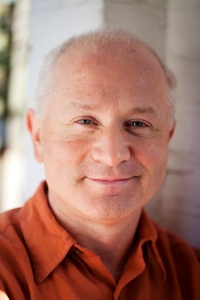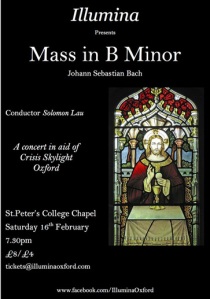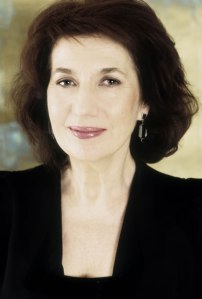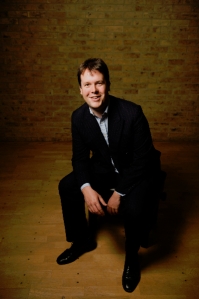Born in 1960, George Benjamin began composing from a young age. He studied at the Paris Conservatoire with Olivier Messiaen (composition) and Yvonne Loriod (piano), continuing his education at King’s College Cambridge with Alexander Goehr. His first orchestral work, Ringed by the Flat Horizon, was performed at the BBC Proms when he was just 20. His first operatic work, Into the Little Hill (2006) was followed by a larger project, Written on Skin (2012), both collaborations with the playwright Martin Crimp. Alongside composing, Benjamin conducts some of the world’s leading ensembles, and holds the post of Henry Purcell Professor of Composition at King’s College, London. In June 2010 he was awarded a C.B.E. in the Queen’s birthday honours, and he was made an Honorary Member of the Royal Philharmonic Society in 2011. His works are published by Faber Music and are recorded on Nimbus Records.
Written on Skin has been referred to as a landmark in British opera. Were you conscious of a weight of tradition when you were writing?
Not really. I mean, I’d been preparing to write a large-scale opera almost since my childhood. I was very aware of the weight of tradition, and had much studied that tradition. I had looked into the few operas that are my favourite operas in great depth not only for myself but also for my students over the last 30 years. But when I got down to writing it, I didn’t close my ears entirely. Basically, I just wanted to attack the libretto – the text – and remain as faithful to the wonderful words created for me by Martin Crimp, and just subsume myself within the drama and serve the drama as best as I could in the music. I didn’t find the weight of tradition an issue while writing at all. The world of opera is a lot younger than the world of music, and I do believe there’s space for more works there for a long time to come. I did try to do something different from any other opera that had been written, and I took what I loved from the operas that I love, and I also avoided quite a few of the things that I’m critical about in the history of opera. In a sense, yes, I was guided by tradition in a positive and negative way, but it didn’t create any untold problems for me while writing it.
What were the aspects you were trying to avoid?
Well, I’d rather keep those to myself! I’d much rather answer through my piece than through words or polemics. But if you were to look at the relationship between the vocal parts and the tissue of orchestral sound around them, I think you’d find a different approach from many recent modern composers, above all in the harmonic sense. And also, though the narrative style of the piece is strange and unusual. Its storytelling is – I hope – very direct and very transparent. That’s not always the case in contemporary opera. Plus, there’s no talking, and there’s lots of singing. That’s also something that I was adamant about – that opera is something you sing. I’m not embarrassed by that, or trying to hide that: on the contrary. I wanted to proclaim that.
Martin Crimp’s libretto balances personal and self-conscious narrative styles. Did you find it a challenge reconciling the two?
No, that facet of the text – Martin Crimp prefers that word to libretto – is what enabled me to write the piece. If it were just a simple, completely ‘normal’ exchange of conversation in everyday speaking with no sense of artifice or of no sense of the strangeness of the medium being acknowledged, then I wouldn’t be able to write a note of music. It’s a very brilliant, clear but also strange construction that Martin invents – it’s what inspires me.
I had to consider all sorts of means of what I represent, what I don’t represent, what the attitude of music towards the narrative moments is, and of course how to mix it all together – how to blend it all and maintain tension. But those are problems facing any theatrical work, whatever the style, I suspect. Some people find this narrative style irritating. Quite a lot of people – more than I was expecting – find it beguiling and hypnotic. It turns the whole work into a dream-like object, which is at the same time I hope red-hot in emotional temperature but withdrawn from reality. Music is not so good at representing reality. It’s not for that I think: it’s beckoned by the drama.
How did you find the transition from Into the Little Hill to Written on Skin? Were you conscious of a big step up of scale?
Yes, and a big challenge. Not only is it scored for an orchestra which is four times bigger, but the cast is two-and-a-half times bigger, and the length of the work is two-and-a-half times bigger! It was a very big challenge – it was a real inflation of everything that I’d tried to do up to that point. But in the end you have to plunge yourself in and see what comes out. I did quite a lot of plotting, trying to find ways of expansion and filling a large canvas. But in some ways, the subconscious decides an awful lot. Once I was well immersed in the drama, the music came much quicker than I was expecting. And continuously – it flowed much more than normal.
At what stage in the process did you decide upon the scale of Written on Skin?
When we’d finished Into the Little Hill at the Aix-en-Provence Festival, Bernard Foccroulle approached Martin and I. We had a choice in front of us: whether to write another small-scale chamber opera like Little Hill, or to go for something bigger. We decided we’d take up the more difficult challenge – a full evening. He [Martin Crimp] must have calculated the rough pace at which I set the words in Into the Little Hill, and magnified that by two-and-a-half to three times! The libretto was about 14 pages for Into the Little Hill, and the current one is about 40 pages.
When I say I immerse myself in writing, I really do immerse myself. I concentrate hugely on the constructive elements, but an awful lot happens behind the scenes in one’s subconscious. I don’t remember it being a huge problem of expanding onto the scale. I won’t say I found it easy, but it was less fraught than I could have expected, maybe.
You tested the voices of the singers from Written on Skin. What were you trying to find?
It’s not that I tested them. With Into the Little Hill, the two singers had inspired me: Hilary Summers, and Anu Komsi. They both came to me and sang to me, and I took lots of notes. I just thought that seemed to work for me: writing for a specific instrument (the human voice) seemed to be an inspiration, it seemed to help. Rather than as it were working with the most perfect piece of concrete, working with a bit of marble which has its own contours: its own flaws, its own characteristics. I just continued with that same approach. In a way, I was auditioning the singers. Martin Crimp was there often when we met them for the first time. But they came back to me afterwards, and I wrote ten to twenty pages of notes on their voices. I discovered what they couldn’t do; what they don’t like doing; what they did like doing; the differences in register; where their voices have the break between head voice and chest voice (the passagio); whether they were good at large intervals; questions of vibrato; problems that they have; things that they love to do. I took notes, and occasionally – more than occasionally, frequently – I would refer to them and think about them while writing. That gave me inspiration because of the beauty of their voices and their dramatic capacities, which are considerable (as with all the people that sang in the premiere) but also the limitations. For instance, a certain singer may have a weak patch in a certain register – at a strong moment, I would definitely avoid that. At moments of climax and emotional intensity, I would go for the strong area of their voice, and so on and so forth. I would consider that each individual role has a form, has a structural trajectory across the whole work, which plays with the qualities of the voices, and in many ways is beckoned by the voices.
Mozart, apparently – I didn’t know this when I began to do this – but he wrote for specific singers.
And Caccini wrote for the tenor Francesco Rasi.
It seems quite natural, in a way. But it has gone out of fashion.
So how did you come to choose those singers in particular?
I’d heard a lot about Barbara Hannigan. I was in residence at the Lucerne Summer Festival in 2008, and she came onstage in the huge main orchestral concert hall and sang a monody by Nono lasting about 3 minutes, and within 30 seconds I knew she was the woman for me in this opera. She commanded this huge space so easily, and her voice was so pure, and so beautiful and lyrical. I sensed huge character and a huge personality. So that was easy.
I’d been told by several people that Bejun Mehta was the best countertenor in the world, and I had the feeling when we met that he was really interested in having something written for him and doing something new – leaving the Baroque world and the few roles of twentieth-century music that exist. And again, when I met him, I found this beauty of tone – this huge character, a huge driving sense of personality.
That was the case with all the characters. Christopher Purves: enormous character, magnificent voice and unbelievable dramatic capacity. And the two angels: Victoria Simmonds, and Allan Clayton. They immediately thrilled me. What often happened is that they would come to my home and they would bring music with them – Debussy, Schumann, Mussorgsky, Berg, Schoenberg, whatever – and I would accompany them, sight-reading at the piano. Most of the decisions were made extremely quickly – it was obvious to me immediately that these people were wonderful.
One of the quickest ways of searching now is YouTube. You can find clips of people singing, sometimes many. And it’s usually very, very easy for me to sense a voice and a musical character that I like. I can usually do it in less than 30 seconds. It’s an intuitive thing. The tone of sound, the personality – it grabs me, just like that.
Did you take into account Barbara Hannigan’s physicality of performance?
No. I couldn’t see that when she was singing this Nono piece, although I was aware that she was extraordinary. People from Paris were telling me about performances where she leapt around like a dancer, that she was fearless on stage. But no, I couldn’t see that in a three minute monody. But I did sense enormous dramatic potential. Her fearlessness on stage, alone, in this vast concert hall – every eye went to her, and stayed with her. I did sense a huge force. It’s not exactly what you’re asking, but I think I did sense a kind of magnetic strength.
How do you find the experience of conducting your own works – is it terrifying, or reassuring in a way?
It’s not reassuring, on the contrary – it’s a tremendous challenge. The last thing I want to do is to damage my own piece. The last thing I want to do while conducting is damage anybody’s piece, but especially my own (and particularly at the world premiere!). I did slightly hesitate to accept the offers to conduct at the first performances, but many people did ask me for the first tour that it’s doing around and I will have conducted about half of the productions within the first two years.
I actually adored being involved with the production, and not just sitting around. In London, we began rehearsals last June – May and June. Firstly at my house, just with music; then at Covent Garden for two weeks with the early staging; and then for another month’s work in Aix-en-Provence. I loved watching Katie Mitchell – wonderful Katie Mitchell – assemble her image of the work with the cast. I found it all fascinating, and sometimes surprising; sometimes hilarious, and often full of drama as well – real drama. I found that absolutely fascinating. I had the luck of having every aspect looked after as I wanted it by the Aix Festival – they were wonderful commissioners.
We had in the pit the incomparable Mahler Chamber Orchestra, which is as good an orchestra as the Berlin, or the Vienna Philharmonic Orchestra, or the Concertgebouw, except somewhat smaller and younger (they’re all about 35 or younger). They are a dream to work with, they played so marvellously. They make life so easy for a conductor! Passages which are difficult to conduct they make easy, simply through their superb intelligence and their effortless virtuosity. I’ve also felt tremendous (and at times, rather moving) support from them, and from the cast. And so I was buoyed up, and surrounded by people who were heading towards the premiere in the most positive way, trying their utmost best.
I remember the cellos having a half-an-hour sectional without me, to work out how to play one particularly difficult passage, and the trumpets doing the same, having half-an-hour on the climactic interlude in Act 3. Before the last performance to be recorded, the orchestra offered me half an hour free, simply to alter any details or update anything for the final recording. We did some incredibly useful small passages which are difficult to carry off very precisely because what’s happening on stage is so complex, or there’s a lot of stage noise. We were able to use those for the recording. In other words, I was very much spoilt by having the best musicians one could have with the very best attitude. It was an enormous pleasure to do it myself. That’s not to say that others wouldn’t do it better, or do it in a different way, but I still loved the experience.
One thing that struck me about Written on Skin was your use of sonority, and the sheer range of colours. I was wondering how that was influenced by your time at IRCAM?
Of course it was – my ear was changed by investigating how sound works; how the ear hears it. But also my time at IRCAM dealing with synthetic sound brought back to me how much I value live sound, performed sound, and actually I haven’t returned to synthetic sound since those days. I think that my music became more transparent after working at IRCAM. It became more critically aware of the quality of sound, and that meant making more specific choices, and maybe less combination and less generic combinations than perhaps one or two of my early pieces had used. I don’t know about that. Yes, it influenced me, but not a huge amount. In no way was I trying most of the time to evoke electronic sound, although I suppose the glass harmonica is like a human electronic instrument because it’s very volatile, very unpredictable, full of friction and of mystery in the sound, but the sonority itself does suggest a tiny bit of electronic sound because it’s so pure.
Did your contact with the spectralists have an impact upon your formal structures?
The spectralists are very concerned with the transformation of sound over time, and sound in motion. It’s that essential thing: timing is everything in the opera house. The timing of surprises; the timing of the way things change; the timing of contrast; the length of sections; the proportions of fast and slow music; the control of harmonic rate; the use of registers; use of dynamics – everything! Everything has a structure on a piece of this scale, and my job is to balance those and to keep it surprising. My desire was that every time the page turns, something new is around the corner, and the ear is constantly being surprised without really knowing it. Constantly being surprised that you haven’t heard the flutes in a high register for an hour; that maybe you’ve never heard a staccato oboe solo until scene 10; the harmonic richness of the glass harmonica saved up for the last scene; and various other things. I was obsessed with the timing, and the proportion, and the evolution of the musical material both in small scale and on the larger scale. And I’m aware that if you make a serious mistake in pacing – potentially trivial things, like the change of register, or the rate of timbral change across the orchestra, things that people don’t think about – that if they’re too flat for too long, the ear will get bored, and the sense of tension will be potentially ruined. You can’t rest until you’ve written the last note, to make sure that the constant juggling act of surprise, suspense, tension and symmetry are well-judged. That’s a big issue.
It’s a constant process of adjustment, then?
It’s just being aware of what the reality is going to be, and to judge it with the imagination and a critical sense. That’s the ambition anyway – I’m not saying I’ve succeeded. But that’s the task.
You were taught by Messiaen and Alexander Goehr, two very different personalities! How have their teaching styles affected your own? Messiaen was not a very philosophical teacher: he was directly involved with the sensual, immediate feeling of sound. He was a little bit more theoretical when looking at rhythm and time – he did have his own very specific, quite idiosyncratic and esoteric theories. But he also (particularly when discussing orchestration and harmony) had an immensely direct sensual approach to the glory of sound, as he saw it. He would transmit that with effortless vitality and joie de vivre. It was intoxicating and wonderful. Goehr (who had been his student 30 years before me) was much more philosophical, and much more influenced by the Second Viennese School. We would discuss and argue very simple but very profound points during lessons.
On the one side – perhaps strange for a Frenchman, an attribute we usually relate to English thinking – empirical approach to sound by Messiaen, and the more theoretical and philosophical approach to structure, and to combination, and to form from Goehr. And so, when I’m dealing with my students, I suppose I try to have a combination of both. We discuss philosophical issues, and combinatorial compositional structural things, sometimes in quite considerable depth. At the same time I remain absolutely open to, and beguiled continuously by the sheer beauty of sound, and the colour of sound (not in Messiaen’s sense, but in just a general sense). And also how to orchestrate the best way – how to make things sound and ring off the page. I can be very critical while always trying to be encouraging of my students’ harmony, or their orchestration, or their combinations of sounds. I suppose I’ve tried!
Messiaen was incredibly joyous while teaching and exuded a great sense of joy in music. I don’t know if I’m able to do that, but I hope I would be able to as well. That was incredibly useful to me as a young composer.
How many composition students do you have?
It depends on the year. When I was writing this opera, I withdrew from all teaching, all conducting, everything: except for two very gifted British students, Edward Nesbit and Christian Mason, both of whom are beginning to do very well. Now, I’m in between large compositional projects. I’m conducting a lot: I just returned from a tour with the Scottish Chamber Orchestra only two days ago. But I also have more one-to-one composition students at King’s College, London than I ever have before – I have six at the moment. I’m doing my series of lectures more frequently than I ever have before: in five days, I’ll be giving a talk about Wozzeck. I’m analysing a scene that I’ve never done, and never looked at before in detail. Teaching this year is particularly important to me.







